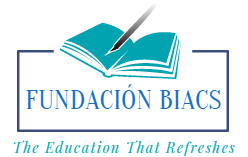Project-based learning, also known as PBL, is an innovative educational approach combining student-guided investigation, collaboration, and real-world solutions.
PBL aims to establish lifelong skills and knowledge through highly involved, hands-on, and engaging activity. PBL projects can include creating a business plan, designing a mobile app, or building tiny houses for the local community.
In this article, we’ll walk through the main advantages of project-based learning, helping you understand how the approach could benefit you, your children, or your students.
Table of Contents
Teamwork Skills And Collaboration
Building lasting relationships, working as a team, and community collaborations underpin every aspect of project-based learning. By working in groups to investigate problems and find solutions, students will develop lifelong skills such as conflict resolution, active listening, and confidence.
Collaborating with peers and industry experts will also improve career prospects, boost employability, and connect students with experienced mentors who will help them along their career path.
Students will also discover the unique learning styles of their classmates (while developing their own), leading to an increased understanding of other people and how they function in the working world.
Problem-Solving And Critical Thinking
PBL analysis and research offer students the opportunity to develop skills that feature less prominently in traditional coursework. For example, when working towards the solution to a real-world issue, students will learn to approach problems in new and potentially unorthodox ways.
In the 21st century, critical thinking is an essential skill for future success in life and the working world. Unlike standard school projects, PBL activities require long-term, thoughtful consideration, reasoned judgment, and executive decision-making.
Perseverance And Overcoming Obstacles
A traditional school assignment will ask students to respond to a question with a specified answer. Generally, there is a a set path from point A (reading the question) to point B (writing down the answer). Using an equation or predetermined method of solving the problem, students will arrive at a distinct conclusion.
However, with project-based learning, this traditional process is flipped on its head. There is no set path to the solution. The answer is not rigid. Instead, there are multiple potential paths towards the answer, and the answer may not be definitive.
While traversing this path, students will face obstacles and setbacks they must overcome. This experience will teach students perseverance, encouraging them to learn from their failures and achieve self-satisfaction in their work.
Project Management
The PBL experience prepares students with vital project management skills that are highly applicable to future life. With knowledge of how to manage tasks effectively under their belt, students will be well-prepared for future career and life challenges.
For example, managing a PBL project may encourage a student to pursue a future career in engineering, information technology, software development, or marketing.
Conclusion
Project-based learning is an innovative teaching method that prepares students with essential skills for work and future life. Through PBL, students will learn teamwork, collaboration, problem-solving, critical thinking, perseverance, project management, and other vital skills that are less prevalent in traditional educational approaches.

